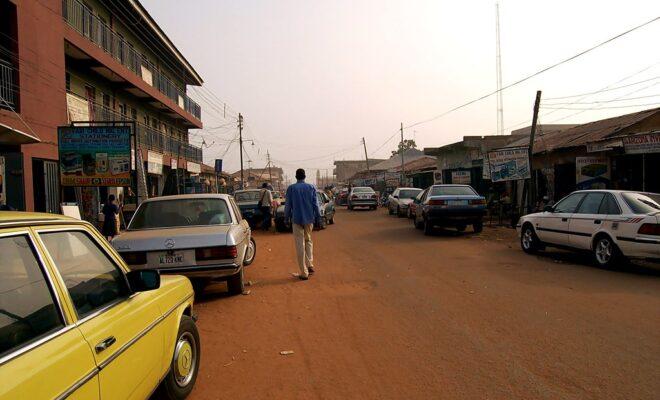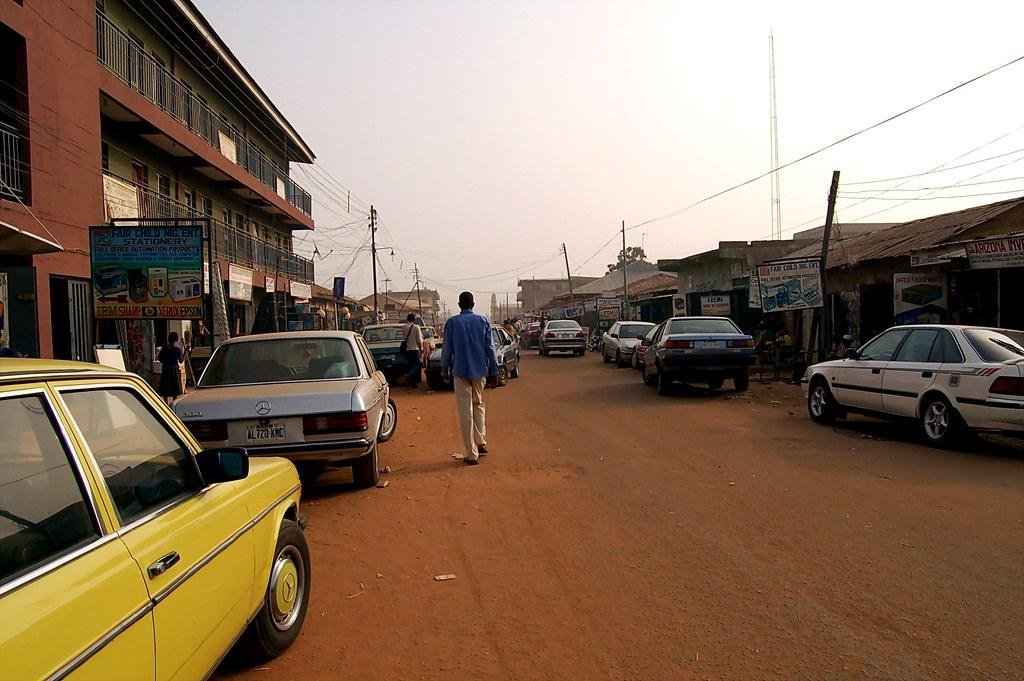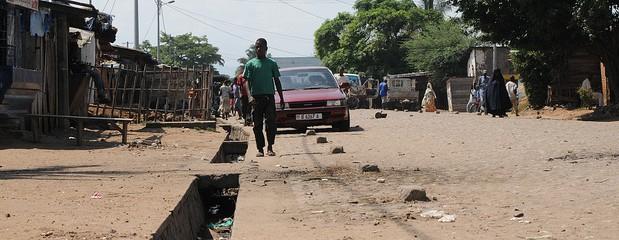Africa Insiders: Behind Nigeria’s Islamic school “torture house”


On the streets of Kaduna in north-west Nigeria. Credit: pjotter05.
The essentials: Police raided Ahmad bin Hambal Centre for Islamic Teachings, a faith school in Kaduna State, northern Nigeria, over the weekend and arrested about seven teachers. Hundreds of boys and men were held at the centre. Their bodies were marked with wounds, evidence of systemic physical torture. The students told reporters they were sexually abused.
The context: Islamic schools are common in northern Nigeria, a region that has the volatile mix of high population density, high poverty rates and low literacy levels. The north’s present state can be traced back to colonialists who focused on providing social infrastructure to coastal towns in the south, which were more essential to colonial administration and exports.
Many parents in northern states choose to send their kids to Islamic schools to learn how to read the Qur’an because they cannot afford to buy books and uniforms required in tuition-free government schools. At these resident schools, the children often become money-making instruments for teachers. They beg in the streets to survive. The boys (girls stay at home) are called Al Majiris meaning ’emigrant’ in Arabic.
The north is struggling with the Al Majiri system. State governments are lost. President Buhari is considering a ban. Education experts have referred to the system as a ticking time bomb, a breeding ground for violent extremism. Analysts even argue that Boko Haram is a consequence of the north’s under-education. More than 13 million kids are out of school in Nigeria, 70% of whom are from the north. Former President Goodluck Jonathan’s attempt at reforming Al Majiri by constructing schools with integrated curricula – combining Qur’anic lessons with Western-style education – was only partly successful.
The good: The raid in Kaduna signals the state government’s intolerance of child and human rights abuses. Governor Nasir el-Rufai has previously been praised (and criticised) for education reforms in the state. The activities in this particular school are eye-opening and alarming, but state officials who participated in the raid promise rigorous scrutiny into the affairs of all Qur’anic schools.
The bad: The school was able to operate undetected in Kaduna city for years. One officer voiced her fears about what is happening in schools located in more remote areas. One imagines it will be much worse. Although the Al Majiri system is unique to the Kanem-Bornu Empire, where it originated, students from Mali, Ghana and Burkina Faso were also among those freed, suggesting there is much to uncover in the system.
The future: States need to look into Al Majiri centres urgently. This may prompt a state ban in Kaduna which could push the federal government to act at a national level. But there will likely be backlash from those who are used to the system. Integrative measures need to be put in place to prevent that. What cannot be done, though, is to ignore the problem. If we are facing groups like Boko Haram and ISWAP now, what will tomorrow bring?
- Nigerian ‘torture house’: Kaduna school was ‘like hellfire’ (BBC)
- Hundreds of Chained Men and Boys Are Rescued in Nigeria (The New York Times)
- Hundreds of boys, men freed from torture building in Nigeria (NBC)
- Police Finds 300 Tortured Students in Nigerian Islamic School (OCCRP)
- Old but good: Nigeria’s Almajiri schools: recruitment ground for terrorists? (DW)
- History of the Almajiri system in Nigeria (Guardian)
- Buhari plans to ban ‘Almajiri’ system but not immediately – Presidency (Premium Times)
Discuss with @Shollytupe on Twitter
Pay what you want for the FULL Africa Insiders Newsletter!
We hope you enjoyed this Free Edition of the Africa Insiders, but is only a taste of the full experience. This week, the Full Edition also covered:
- Follow up: Tanzania’s Ebola stonewalling
- Continental health corner: The death of a giant in the global health equality movement
- State of the Earth: Conflict Watch
- Election Watch
- Links of the week: Everything Africa-related that is worth your time and attention
To upgrade, email [email protected], telling us the price you’d like to pay.
Yes, you decide the price as long as it’s at least $2 per month to cover the transaction costs.
If you are unsure what to pay, we recommend $10, but it’s up to you and we won’t judge. If you give more ($15/month, $50/month, $100/month!), your extra donation above $10 will go into a special fund for AfricanArguments.org to commission in-depth articles by African writers and journalists that will be free to read for everyone.
Again, just email [email protected] and let us know any amount of $2 or more and you’ll get the Full Africa Insiders Newsletter for the price that feels right to YOU!
The Africa Insiders’ Newsletter is a collaboration between AfricanArguments.org and @PeterDoerrie, with contributions from @_andrew_green and @Shollytupe and assistance from Stella Nantongo. Part of the subscription revenue is funding in-depth and freely accessible reporting and analysis on African Arguments.






Re. “tuition-free government schools” – I think you meant to say that government schools don’t charge tuition fees, not (as this literally says) that they do not provide any teaching.
they have been in south africa and doing the same thing and we were banned from talking foreigners crimes nor did these rulers appoint the intelligence to investigate their intentions in this country!our people are scarred and destroyed and ruined by these nigerians!